第7章 LETTER 2(5)
Besides the advantage of beginning our acquaintance with mankind sooner,and of bringing with us into the world,and the business of it,such a cast of thought and such a temper of mind,as will enable us to make a better use of our experience;there is this further advantage in the study of history,that the improvement we make by it extends to more objects,and is made at the expense of other men:whereas that improvement,which is the effect of our own experience,is confined to fewer objects,and is made at our own expense.To state the account fairly,therefore,between these two improvements,though the latter be the more valuable,yet allowance being made on one side for the much greater number of examples that history presents to us,and deduction being made on the other of the price we often pay for our experience,the value of the former will rise in proportion."I have recorded these things,"says Polybius,after giving an account of the defeat of Regulus,"that they who read these commentaries may be rendered better by them;for all men have two ways of improvement,one arising from their own experience,and one from the experience of others.Evidentior quidem illa est,quae per propria ducit infortunia at tutior illa,quae per aliena."I use Casubon's translation.Polybius goes on,and concludes,"that since the first of these ways exposes us to great labor and peril,whilst the second works the same good effect,and is attended by no evil circumstance,every one ought to take for granted that the study of history is the best school where he can learn how to conduct himself in all the situations of life."Regulus had seen at Rome many examples of magnanimity,of frugality,of the contempt of riches,and of other virtues;and these virtues he practised.But he had not learned,nor had opportunity of learning another lesson,which the examples recorded in history inculcate frequently,the lesson of moderation.An insatiable thirst of military fame,an unconfined ambition of extending their empire,an extravagant confidence in their own courage and force,an insolent contempt of their enemies,and an impetuous overbearing spirit with which they pursued all their enterprises,composed in his days the distinguishing character of a Roman.Whatever the senate and people resolved,to the members of that commonwealth appeared both practicable and just.Neither difficulties nor dangers could check them;and their sages had not yet discovered,that virtues in excess degenerate into vices.Notwithstanding the beautiful rant which Horace puts into his mouth,I make no doubt that Regulus learned at Carthage those lessons of moderation which he had not learned at Rome:but he learned them by experience,and the fruits of this experience came too late,and cost too dear;for they cost the total defeat of the Roman army,the prolongation of a calamitous war which might have been finished by a glorious peace,the loss of liberty to thousands of Roman citizens,and to Regulus himself the loss of life in the midst of torments,if we are entirely to credit what is perhaps exaggeration in the Roman authors.